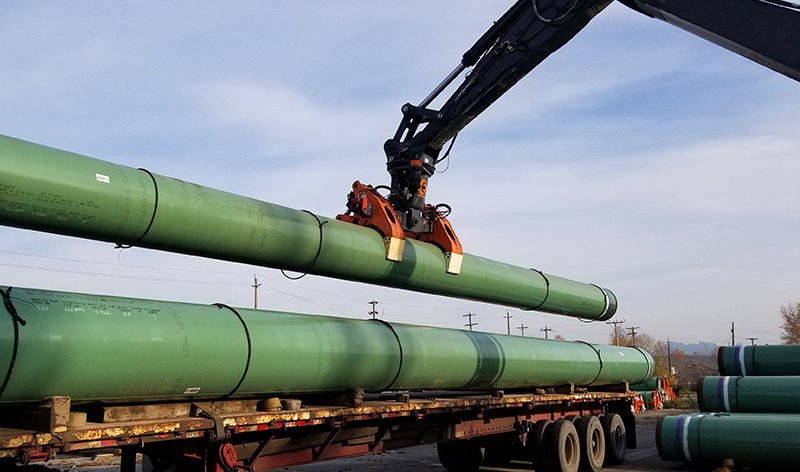A group of Burnaby residents has issued a statement expressing ‚Äúdeep disappointment‚ÄĚ in a ruling from the Federal Court of Appeals that shot down Indigenous opposition to the Trans Mountain pipeline project.
Burnaby Residents Opposing Kinder Morgan Expansion said they ‚Äúalso share First Nations‚Äô inability to understand why the federal government continues to make a mockery of ‚Äėreconciliation‚Äô by treating First Nations improperly, disrespectfully and unconstitutionally.‚ÄĚ
The Federal Court of Appeal said in a ruling published Tuesday morning that the four Indigenous communities challenging the pipeline failed to make their case that the federal government’s consultation process was inadequate.
In particular, the court shot down any notion that Indigenous communities have a ‚Äúveto‚ÄĚ over any project running through their traditional territories.
‚ÄúThe fact that consultation has not led the four applicants to agree that the project should go ahead does not mean that reconciliation has not been advanced,‚ÄĚ the ruling reads.
‚ÄúReconciliation does not dictate any particular substantive outcome. Were it otherwise, Indigenous peoples would effectively have a veto over projects such as this one. The law is clear that no such veto exists.‚ÄĚ
While several communities had filed applications for a judicial review of the federal government’s approval of the pipeline, particularly taking aim at the consultation process involving First Nations communities, just six were allowed to proceed.
Of those six, two later pulled out, leaving Tsleil-Waututh of the North Shore, a Chilliwack-area group collectively referred to as Ts’elxwéyeqw, the Squamish Nation and the Coldwater Indian Band as challengers.
In their statement, BROKE said the group stands with Indigenous communities ‚Äúin their demand that Canada finally treat them in accordance with the law and human decency.‚ÄĚ
‚ÄúAnd we stand with them in our determination to ensure that the TMX will never be built. ‚Ķ We would also like to draw attention (again) to the [Prime Minister Justin] Trudeau Liberals‚Äô duty to provide for the public safety and environmental protection of Burnaby and surrounding communities,‚ÄĚ BROKE said.
‚ÄúThey must stop ignoring the very serious threats to public safety and our environment from the old and planned pipelines, from the old and planned storage tanks on Burnaby Mountain, and from the current and planned shipping in Burrard Inlet and the Salish Sea.‚ÄĚ
The group said it would like to see the Government of Canada stop ‚Äúwasting tax dollars to massively subsidize a sunset industry that is worsening the global climate crisis.‚ÄĚ
Earlier in the day, leaders from the four Indigenous communities spoke to media on the ruling, saying the fight against the pipeline would continue.
In a statement published to the federal government‚Äôs website, Natural Resources Minister Seamus O‚ÄôRegan said the government ‚Äúwelcomes‚ÄĚ the decision from the court.
‚ÄúToday‚Äôs ruling affirms that the Government of Canada‚Äôs renewed consultations with Indigenous communities addressed the issues identified by the Federal Court of Appeal,‚ÄĚ O‚ÄôRegan is quoted as saying.



